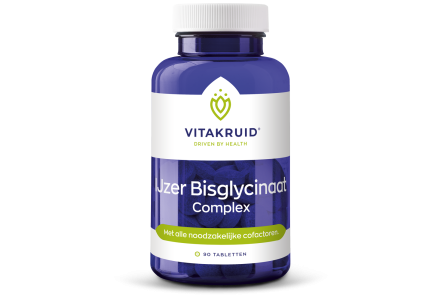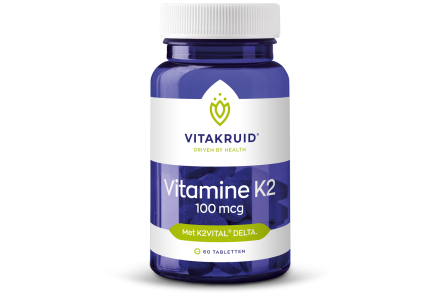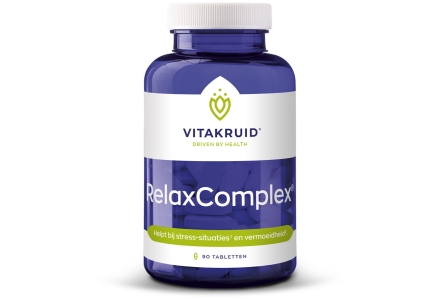
When you use vitamins and minerals in the form of supplements to support your health, it may seem easy to combine them. However, not all nutrients work well together, and some may even work against each other. The body has a complex way of absorbing vitamins and minerals, and the right combinations can increase the effectiveness of supplements. In contrast, incorrect combinations can reduce absorption or even interfere with the action of medications. In this blog, we give examples of nutrients that reinforce each other and nutrients that counteract each other when taken simultaneously. We also explain why it is important to consider these when taking supplements.
Why Use Supplements
Supplements are a popular way to supplement nutrient deficiencies, especially when a healthy and varied diet is not always feasible.
Many people take vitamins and minerals to boost their immune systems, maintain energy levels or support their overall health. But also for prevention to prevent any symptoms in the future.
In some cases, additional supplementation is also needed due to specific health conditions, medication use, or increased needs, such as during pregnancy or intense athletic activity.
But before combining different supplements, it is important to know which vitamins and minerals do or do not work well together.
Nutrients working against each other:
Although supplements are often used to promote health, certain combinations of nutrients can counteract each other. In addition, these substances may also interact with medications, which can affect their effectiveness.
There are numerous interactions between different nutrients, as well as between nutrients and medications, and while we discuss some common combinations here, it is important to realize that this is only part of the possible interactions.
Supplements and Medication
The interaction between supplements and medication is an important concern because certain supplements can enhance, weaken or cause unwanted side effects of medications. Below are some examples of known interactions:
Vitamin K and blood thinners: Vitamin K plays a role in blood clotting and can interfere with the action of blood thinners. People taking blood thinners should therefore be careful with vitamin K intake.
Calcium and antibiotics: Calcium can reduce the absorption of certain antibiotics. This means it is better to stagger the use of calcium supplements and antibiotics.
Magnesium and blood pressure-lowering drugs: Magnesium supplements can enhance the effect of blood pressure-lowering medications because magnesium itself also helps relax blood vessels and lower blood pressure. This can lead to excessively low blood pressure.
Because there are so many different types of medications and supplements, it is always wise to consult with a doctor or pharmacist before using supplements in combination with medication.
Calcium and Magnesium
While calcium and magnesium are both essential for strong bones and muscles, in high doses they can get in each other's way. This is because calcium and magnesium compete for the same transport mechanisms in the digestive tract. Too much calcium can interfere with magnesium absorption, and vice versa, making it important to find the right balance when taking both supplements. Excess calcium can lead to magnesium deficiency, which can cause muscle cramps and other problems.
Supplements that contain both calcium and magnesium often have a balanced ratio of 2:1 (two parts calcium to one part magnesium), although some experts today recommend a different ratio. If in doubt about the best ratio for you, it is advisable to seek advice from a health care provider or therapist.
Iron and green tea
Iron and green tea can counteract each other because green tea contains substances that reduce the absorption of iron in your body. Green tea is rich in polyphenols, which can bind to iron in your intestines and thus limit the absorption of iron (especially from plant sources). This is especially important for people on a vegetarian or vegan diet because they rely on iron from plant sources, which is naturally more difficult to absorb than iron from animal products.
For people with iron deficiency or those who are sensitive to low iron levels, drinking green tea around meals or when taking iron supplements can adversely affect iron absorption. A simple way to counteract this is to not consume green tea and iron supplements or iron-rich meals at the same time, but leave at least a few hours between them.
Nutrients that reinforce each other:
Just as some nutrients can work against each other, there are also nutrients that actually enhance each other's absorption or effect. By making these clever combinations, you can get the most out of the supplements you take. Here we list some well-known nutrients that have synergistic effects.
Collagen and vitamin C
A good example is collagen and vitamin C. Vitamin C plays a crucial role in the production of collagen, an important protein for skin, bone and joint health. Collagen occurs naturally in the body, but as we age, collagen production decreases. Collagen can also be taken as a supplement.
Without enough vitamin C, your body has a harder time making new collagen. Therefore, collagen supplements are often combined with vitamin C to increase effectiveness.
Vitamin D and K
Vitamin D and vitamin K also work well together, especially when it comes to your bone health. Vitamin D helps absorb calcium from your diet, while vitamin K ensures that the calcium is transported to the right places in the body, such as the bones. In addition, vitamin K helps prevent calcium from depositing in your blood vessels. This interplay between vitamin K and calcium is vital to maintaining both strong bones and healthy blood circulation.
Magnesium and vitamin B6
Another powerful combination is magnesium and vitamin B6. Magnesium is involved in hundreds of processes in the body, including supporting energy metabolism and muscle relaxation. In addition, magnesium is good for the nervous system, promotes healthy mental balance and has a positive impact on the immune system.
Vitamin B6 helps your body better absorb and utilize magnesium, which can be especially important for people with magnesium deficiencies. A deficiency of either can reduce the efficiency of the other which can lead to problems such as fatigue and tense muscles.
Iron and vitamin C
Finally, iron and vitamin C form a classic duo. Vitamin C improves absorption of the type of iron that comes from plant sources. Vitamin C converts this type of iron into a form that is more easily absorbed by the body.
This is especially important for vegetarians and vegans, who may have difficulty getting enough iron because they rely on iron from plant sources.
For example, by drinking a glass of orange juice (rich in vitamin C) with an iron-rich meal, such as spinach, you can significantly increase iron absorption.
Our Advice: Customization is Important
Vitamin and mineral needs vary from person to person. Factors such as age, health status, diet and medication use all play a role in the specific need for certain nutrients. Therefore, it is important for everyone to tailor their diet and any supplementation to their personal needs. This should take into account what combination of nutrients do and do not go well together.
At Meditech Europe, we are ready to support you with questions about vitamins, minerals and supplements. Our team of experts, including an orthomolecular therapist, offers customized guidance and advice to develop a treatment plan that perfectly matches your health goals. Whether you are looking for information on supplementing deficiencies, optimizing your diet, or preventing excessive nutrient intake, we are here to help you on your path to a healthier life. Feel free to contact us for professional advice and a personalized plan!









